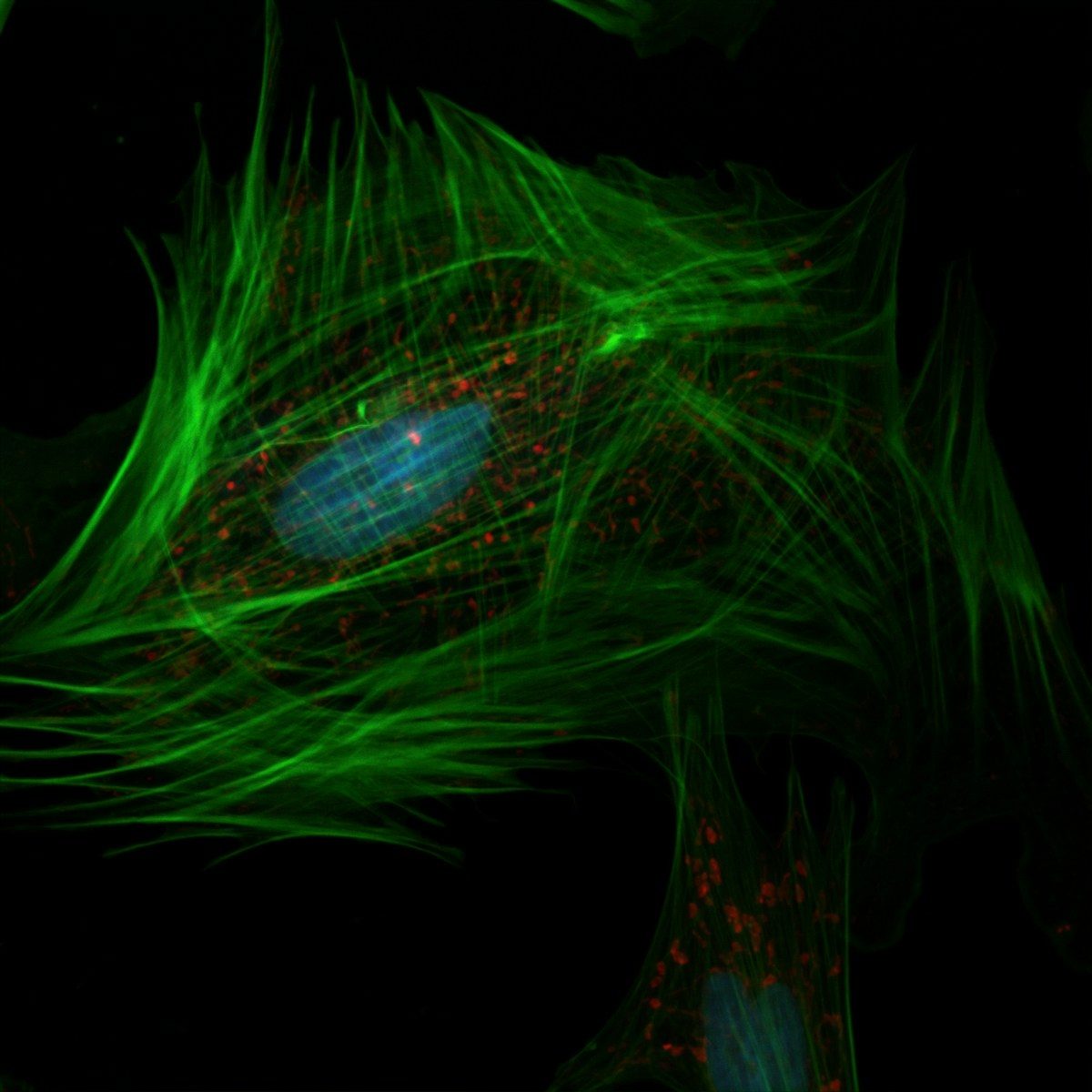From Studies to Sages & Scientists
By Ryan Castle
In our fast-paced world, the pursuit of health and well-being is often seen as fleeting thing, a bit of relaxation here, a dose of yoga there, all too easily lost in the hustle of day to day life. But what if all the efforts we put in had more long-lasting effects than what the current moment’s stress levels suggest? The groundbreaking research co-authored by Dr. Deepak Chopra delves into the science of mind-body practices (MBPs) like yoga, tai chi, and meditation, revealing how these ancient practices might actually reprogram our genes, offering profound benefits for both mental and physical health that can last through our lives.
For years, Dr. Chopra has championed the integration of mind-body practices into mainstream medicine, urging us to explore the potential of these practices not just as tools for relaxation, but as powerful methods for transforming our biology. This research exemplifies his vision, showing that these practices can influence gene expression in ways that promote health and longevity. It’s a radical shift in how we think about wellness—one that bridges the gap between ancient wisdom and cutting-edge science. The study dives deep into how mind-body practices can modulate the neuroimmunoendocrine axis, a complex network that includes our nervous, immune, and endocrine systems, to foster better health. It’s a fascinating intersection of ancient practices and cutting-edge science, where the wisdom of the past meets the rigor of modern research to unlock new possibilities for enhancing our well-being.
The implications of this research are profound, offering a new understanding of how our daily practices can shape our health at the molecular level. We’ve long known that stress, diet, and exercise influence our well-being, but this research suggests that MBPs can take this influence to a deeper level—down to the very way our genes function. Imagine being able to reduce inflammation, boost immune function, or even slow the aging process, not through medication, but by engaging in practices that have been around for millennia. These findings are not just about managing stress or finding inner peace; they are about fundamentally altering the trajectory of our health.
This blending of ancient and modern worlds is not just a theoretical exercise. The research highlights how MBPs can influence the expression of genes associated with inflammation, cellular aging, and immune response—key factors in preventing chronic diseases like heart disease, diabetes, and cancer. This is more than just a wellness trend; it’s the emergence of a new paradigm in health care, one where ancient practices are validated and enhanced by modern scientific methods.
Yet, as promising as these findings are, the journey is far from complete. The research community is just beginning to scratch the surface of how mind-body traditions influence our biology, but the potential here is enormous. This is not just about personal wellness; it’s about paving the way for a new era of personalized medicine that integrates mind-body practices as essential tools for health and longevity.
This convergence of ancient wisdom and modern science is precisely why events like Sages & Scientists 2024, a mind-body and science conference hosted by the Chopra Foundation, are so critical. These gatherings provide a platform for scientists, practitioners, and thought leaders to share insights, challenge assumptions, and build a future where the best of both worlds—ancient practices and modern science—work together to enhance human health and well-being. As we stand on the brink of this new era, it’s clear that the path to a healthier, longer life may not just lie in the labs of tomorrow, but also in the ancient practices of our ancestors, now validated and expanded by the science of today.
References
(all citations from the research paper included for your perusal!)
- Bhattacharyya KK, Hueluer G, Meng H, Hyer K. Mind-body practices in US adults: Prevalence and correlates. Complementary therapies in medicine. 2020 Aug 1;52:102501.
- Lemon JC, Wagner B. Exploring the mind-body connection: therapeutic practices and techniques. American: American Counseling Association. 2013 Mar 20.
- Marson, F., Zampieri, M., Verdone, L., Bacalini, M. G., Ravaioli, F., Morandi, L., Chiarella, S. G., Vetriani, V., Venditti, S., Caserta, M., Raffone, A., Dotan Ben-Soussan, T., & Reale, A. Quadrato Motor Training (QMT) is associated with DNA methylation changes at DNA repeats: A pilot study. PloS One,2023;18(10):e0293199.
- Househam, A. M. (2023). Effects of stress and mindfulness on epigenetics. In Hormones and Epigenetics (Vol. 122, pp. 283–306). Elsevier.
- Kanherkar RR, Stair SE, Bhatia-Dey N, Mills PJ, Chopra D, Csoka AB. Epigenetic mechanisms of integrative medicine. Evidence-Based Complementary and Alternative Medicine. 2017 Feb 21;2017.
- ThyagaRajan S, Priyanka HP. Bidirectional communication between the neuroendocrine system and the immune system: relevance to health and diseases. Annals of Neurosciences. 2012 Jan;19(1):40.
- Kripalani, S., Pradhan, B., & Gilrain, K. L. The potential positive epigenetic effects of various mind-body therapies (MBTs): a narrative review. Journal of Complementary & Integrative Medicine,2022;19(4):827–832.
- Cozzolino M, Guarino F, Castiglione S, Cicatelli A, Celia G. Pilot Study on Epigenetic Response to A Mind-Body Treatment. Transl Med UniSa. 2018 Mar 31;17:37-41.
- Kripalani S, Pradhan B, Gilrain KL. The potential positive epigenetic effects of various mind-body therapies (MBTs): a narrative review. Journal of Complementary and Integrative Medicine. 2022 Dec 5;19(4):827-32.)
- Ren H, Collins V, Clarke SJ, Han J-S, Lam P, Clay F, et al. Epigenetic changes in response to tai chi practice: a pilot investigation of DNA methylation marks. Evid Based Complement Altern Med 2012;2012:841810.
- Chaix R, Fagny M, Cosin-Tomás M, Alvarez-López M, Lemee L, Regnault B, Davidson RJ, Lutz A, Kaliman P. Differential DNA methylation in experienced meditators after an intensive day of mindfulness-based practice: Implications for immune-related pathways. Brain, behavior, and immunity. 2020 Feb 1;84:36-44.
- Chaix R, Alvarez-López MJ, Fagny M, Lemee L, Regnault B, Davidson RJ, Lutz A, Kaliman P. Epigenetic clock analysis in long-term meditators. Psychoneuroendocrinology. 2017 Nov 1;85:210-4.
- Harkess KN, Ryan J, Delfabbro PH, Cohen-Woods S. Preliminary indications of the effect of a brief yoga intervention on markers of inflammation and DNA methylation in chronically stressed women. Translational psychiatry. 2016 Nov;6(11):e965-.
- Kaliman P, Alvarez-Lopez MJ, Cosín-Tomás M, Rosenkranz MA, Lutz A, Davidson RJ. Rapid changes in histone deacetylases and inflammatory gene expression in expert meditators. Psychoneuroendocrinology. 2014 Feb 1;40:96-107.
- Nutma, E., Willison, H., Martino, G., & Amor, S. Neuroimmunology – the past, present and future. Clinical and Experimental Immunology,2019;197(3):278–293.
- Molina de González Méndez T. Psiconeuroinmunoendocrinologia, emociones y enfermedad. Una revisión. MedULA. 2009;18(2):155-64.
- Intebi A. The psychoneuroimmunoendocrinology and its importance in modern medicine. Rev Méd-Cient “Luz Vida”. 2012;3(1):71–2
- González-Díaz SN, Arias-Cruz A, Elizondo-Villarreal B, Monge-Ortega OP. Psychoneuroimmunoendocrinology: clinical implications. World Allergy Organization Journal. 2017 Jan 1;10:19.
- Goldbeck, F., Xie, Y. L., Hautzinger, M., Fallgatter, A. J., Sudeck, G., & Ehlis, A.-C. Relaxation or regulation: The acute effect of mind-body exercise on heart rate variability and subjective state in experienced Qi Gong practitioners. Evidence-Based Complementary and Alternative Medicine: eCAM, 2021:1–14.
- Datta, A., Saha, C., Godse, P., Sharma, M., Sarmah, D., & Bhattacharya, P. Neuroendocrine regulation in stroke. Trends in Endocrinology and Metabolism: TEM,2023;34(5):260–277.
- Datta, A., Saha, C., Godse, P., Sharma, M., Sarmah, D., & Bhattacharya, P. Neuroendocrine regulation in stroke. Trends in Endocrinology and Metabolism: TEM,2023;34(5):260–277.
- Zhu, Y., Duan, S., Wang, M., Deng, Z., & Li, J. Neuroimmune interaction: A widespread mutual regulation and the weapons for barrier organs. Frontiers in Cell and Developmental Biology,2022;10.
- Kamimura, D., Ohki, T., Arima, Y., Ota, M., & Murakami, M. Gateway reflex: Local neuroimmune interactions that regulate blood vessels. Neurochemistry International,2019;130(104303):104303.
- Shea-Donohue, T., & Urban, J. F., Jr. (2016). Neuroimmune Modulation of Gut Function. In Gastrointestinal Pharmacology (Vol. 239, pp. 247–267). Springer International Publishing.
- Arambula, S. E., & McCarthy, M. M. Neuroendocrine-immune crosstalk shapes sex-specific brain development. Endocrinology,2020;161(6).
- Nutma, E., Willison, H., Martino, G., & Amor, S. Neuroimmunology – the past, present and future. Clinical and Experimental Immunology,2019;197(3):278–293.
- Zhu, Y., Duan, S., Wang, M., Deng, Z., & Li, J. Neuroimmune interaction: A widespread mutual regulation and the weapons for barrier organs. Frontiers in Cell and Developmental Biology,2022;10.
- Qureshi IA, Mehler MF. Epigenetic mechanisms underlying nervous system diseases. Handbook of clinical neurology. 2018 Jan 1;147:43-58.
- Ambrosi, C., Manzo, M., & Baubec, T. Dynamics and context-dependent roles of DNA methylation. Journal of Molecular Biology,2017;429(10):1459–1475.
- Moraes, L. J., Miranda, M. B., Loures, L. F., Mainieri, A. G., & Mármora, C. H. C. A systematic review of psychoneuroimmunology-based interventions. Psychology, Health & Medicine,2018;23(6):635–652.
- Wang, Q., Xiong, F., Wu, G., Liu, W., Chen, J., Wang, B., & Chen, Y. Gene body methylation in cancer: molecular mechanisms and clinical applications. Clinical Epigenetics,2022;14(1).
- Haghi, M., Ghanbari, M., Khosroshahi, N. S., Alamdar, M., Abdi, A., Aghazadeh, A., & Pourfeizi, M. An updated review on the significance of DNA and protein methyltransferases and de-methylases in human diseases: From molecular mechanism to novel therapeutic approaches. Current Medicinal Chemistry,2023;30.
- Paul, S. Impact of epigenetics on human health and possible tool for remediation. The Nucleus; an International Journal of Cytology and Allied Topics,2021;64(3):255–258.
- Castellano-Castillo, D., Ramos-Molina, B., Cardona, F., & Queipo-Ortuño, M. I. Epigenetic regulation of white adipose tissue in the onset of obesity and metabolic diseases. Obesity Reviews: An Official Journal of the International Association for the Study of Obesity,2020;21(11).
- Zilbauer, M., & Kraiczy, J. (2017). Epigenetics in gastrointestinal health and disease: Spotlight on DNA methylation in the intestinal epithelium. In Intestinal Microbiome: Functional Aspects in Health and Disease (Vol. 88, pp. 35–44). S. Karger AG.
- Lundstrom, K. Epigenetics, nutrition, disease and drug development. Current Drug Discovery Technologies,2019;16(4):386–391.
- Bure IV, Nemtsova MV, Kuznetsova EB. Histone modifications and non-coding RNAs: mutual epigenetic regulation and role in pathogenesis. International Journal of Molecular Sciences. 2022 May 22;23(10):5801.
- Zhang X, Wang W, Zhu W, Dong J, Cheng Y, Yin Z, Shen F. Mechanisms and functions of long non-coding RNAs at multiple regulatory levels. International journal of molecular sciences. 2019 Nov 8;20(22):5573.
- Alegría-Torres JA, Baccarelli A, Bollati V. Epigenetics and lifestyle. Epigenomics. 2011 Jun;3(3):267-77.
- Sawalha K, Norgard N, López-Candales A. Epigenetic regulation and its effects on aging and cardiovascular disease. Cureus. 2023 May 23;15(5).
- Tiffon C. The impact of nutrition and environmental epigenetics on human health and disease. International journal of molecular sciences. 2018 Nov 1;19(11):3425.
- Wang K, Liu H, Hu Q, Wang L, Liu J, Zheng Z, Zhang W, Ren J, Zhu F, Liu GH. Epigenetic regulation of aging: implications for interventions of aging and diseases. Signal transduction and targeted therapy. 2022 Nov 7;7(1):374.
- Grasser LR, Marusak H. Strong mind, strong body: The promise of mind–body interventions to address growing mental health needs among youth. Mental Health Science. 2023 Jun;1(2):58-66
- Desai S, Borg B, Cuttler C, Crombie KM, Rabinak CA, Hill MN, Marusak HA. A systematic review and meta-analysis on the effects of exercise on the endocannabinoid system. Cannabis and cannabinoid research. 2022 Aug 1;7(4):388-408.
- Burnett-Zeigler I, Schuette S, Victorson D, Wisner KL. Mind–body approaches to treating mental health symptoms among disadvantaged populations: A comprehensive review. The Journal of Alternative and Complementary Medicine. 2016 Feb 1;22(2):115-24. 2022
- Han YM, et al. A mind-body lifestyle intervention enhances emotional control in patients with major depressive disorder: A randomized, controlled study. Cogn. Affect. Behav. Neurosci. 2020;20(5):1056–1069. doi: 10.3758/s13415-020-00819-z.
- Sezer, I., Pizzagalli, D.A. & Sacchet, M.D. Resting-state fMRI functional connectivity and mindfulness in clinical and non-clinical contexts: A review and synthesis. Neurosci. Biobehav. Rev. 104583 (2022).
- Giridharan S. Beyond the Mat: Exploring the Potential Clinical Benefits of Yoga on Epigenetics and Gene Expression: A Narrative Review of the Current Scientific Evidence. International Journal of Yoga. 2023 May 1;16(2):64-71.
- Dotan Ben-Soussan T, Glicksohn J, Goldstein A, Berkovich-Ohana A, Donchin O. Into the square and out of the box: the effects of Quadrato Motor Training on creativity and alpha coherence. PLoS One. 2013 Jan 30;8(1):e55023.
- Paoletti P, Glicksohn J, Ben-Soussan TD. Inner design technology: improved affect by quadrato motor training. The Amygdala—Where Emotions Shape Perception, Learning and Memories. Rijeka: InTech. 2017 Jul 5:27-41.
- Nayak M, Das D, Pradhan J, Ahmed RG, Laureano-Melo R, Dandapat J. Epigenetic signature in neural plasticity: the journey so far and journey ahead. Heliyon. 2022 Dec 19;8(12):e12292
- Venditti, S., Verdone, L., Pesce, C., Tocci, T., Caserta, M., and Ben-Soussan, T. D. (2015). Creating well-being: increased creativity and proNGF decrease following Quadrato Motor Training. BioMed Res. Int. 2015:275062
- Caserta, M., Ben-Soussan, T. D., Vetriani, V., Venditti, S., and Verdone, L. (2019). Influence of Quadrato Motor Training on salivary proNGF and proBDNF. Front. Neurosci. 13:58.
- Leal G, Afonso PM, Salazar IL, Duarte CB. Regulation of hippocampal synaptic plasticity by BDNF. Brain research. 2015 Sep 24;1621:82-101
- Monteiro BC, Monteiro S, Candida M, Adler N, Paes F, Rocha N, Nardi AE, Murillo-Rodriguez E, Machado S. Relationship between brain-derived neurotrofic factor (Bdnf) and sleep on depression: a critical review. Clinical practice and epidemiology in mental health: CP & EMH. 2017;13:213
- Daube, W. C., and Jakobsche, C. E. (2015). Biochemical effects of meditation: a literature review. Undergrad. Res. J. Clark 1:10
- Robert-McComb, J. J., Cisneros, A., Tacón, A., Panike, R., Norman, R., Qian, X.-P., et al. (2015). The effects of mindfulness-based movement on parameters of stress. Int. J. Yoga Ther. 25, 79–88.
- Twal, W. O., Wahlquist, A. H., and Balasubramanian, S. (2016). Yogic breathing when compared to attention control reduces the levels of pro-inflammatory biomarkers in saliva: a randomized control trial. BMC Compl. Alt. Med. 16:294. doi: 10.1186/s12906-016-1286-7
- Househam, A. M., Peterson, C. T., Mills, P. J., and Chopra, D. (2017). The effects of stress and meditation on the immune system, human microbiota, and epigenetics. Adv. Mind Body Med. 31, 10–25
- García-Campayo, J., Puebla-Guedea, M., Labarga, A., Urdánoz, A., Roldán, M., Pulido, L., et al. (2018). Epigenetic response to mindfulness in peripheral blood leukocytes involves genes linked to common human disease. Mindfulness 9, 1146–1159.
- Jakaria, M., Haque, M. E., Cho, D.-Y., Azam, S., Kim, I.-S., and Choi, D.-K. (2019). Molecular insights into NR4A2 (Nurr1): an emerging target for neuroprotective therapy against Neuroinflammation and neuronal cell death. Mol. Neurobiol. 56, 5799–5814.
- Wang JY, Li H, Ma CM, Wang JL, Lai XS, Zhou SF. Acupuncture May Exert Its Therapeutic Effect through MicroRNA-339/Sirt2/NF B/FOXO1 Axis. BioMed Research International. 2015;2015.
- Álvarez-López, M. J., Conklin, Q. A., Cosín-Tomás, M., Shields, G. S., King, B. G., Zanesco, A. P., Kaliman, P., & Saron, C. D. Changes in the expression of inflammatory and epigenetic-modulatory genes after an intensive meditation retreat. Comprehensive Psychoneuroendocrinology,2022;11(100152):100152.
- Cozzolino, M., Guarino, F., Castiglione, S., Cicatelli, A., & Celia, G. Pilot study on epigenetic response to A mind-body treatment. Translational Medicine,2018.
- Marson F, Zampieri M, Verdone L, Bacalini MG, Ravaioli F, Morandi L, Chiarella SG, Vetriani V, Venditti S, Caserta M, Raffone A. Quadrato Motor Training (QMT) is associated with DNA methylation changes at DNA repeats: A pilot study. Plos one. 2023 Oct 25;18(10):e0293199.
- Mendioroz M, Puebla-Guedea M, Montero-Marín J, Urdánoz-Casado A, Blanco-Luquin I, Roldán M, Labarga A, García-Campayo J. Telomere length correlates with subtelomeric DNA methylation in long-term mindfulness practitioners. Scientific Reports. 2020 Mar 12;10(1):4564.
- Tarnowski, M., Kopytko, P., & Piotrowska, K. Epigenetic regulation of inflammatory responses in the context of physical activity. Genes,2021;12(9):1313.
- D’Souza, R. F., Markworth, J. F., Aasen, K. M. M., Zeng, N., Cameron-Smith, D., & Mitchell, C. J. Acute resistance exercise modulates microRNA expression profiles: Combined tissue and circulatory targeted analyses. PloS One,2017;12(7):e0181594
- Campbell M, Jialal I. Physiology, Endocrine Hormones.
- Sibuh, B., Quazi, S., Panday, H., Parashar, R., Jha, N., Mathur, R., Jha, S., Taneja, P., & Jha, A. The emerging role of epigenetics in metabolism and endocrinology. Biology,2023;12(2):256.
- Pascoe MC, Thompson DR, Ski CF. Meditation and endocrine health and wellbeing. Trends in Endocrinology & Metabolism. 2020 Jul 1;31(7):469-77.
- Wang W The effects of practicing Tai Chi on endocrine function in aged males. J Shanghai Chin Trad Med. 1986;103- 5
- Clarke G, Stilling RM, Kennedy PJ, Stanton C, Cryan JF, Dinan TG. Minireview: gut microbiota: the neglected endocrine organ. Molecular endocrinology. 2014 Aug 1;28(8):1221-38.
- Nikhara, M. Yoga influences gut microbiome: A conceptual study. Ijfans.org,2023
- Kang, D., Wang, X., & Wang, J. Intervention study of tai chi training on the intestinal flora of college student basketball players. Medicine,2023;102(36):e35044.
- Raman, M., Vishnubhotla, R., Ramay, H. R., Gonçalves, M. C. B., Shin, A. S., Pawale, D., Subramaniam, B., & Sadhasivam, S. Isha yoga practices, vegan diet, and participation in Samyama meditation retreat: impact on the gut microbiome & metabolome – a non-randomized trial. BMC Complementary Medicine and Therapies,2023;23(1).
- Hinds JA, Sanchez ER. The role of the hypothalamus–pituitary–adrenal (HPA) axis in test-induced anxiety: assessments, physiological responses, and molecular details. Stresses. 2022 Mar 14;2(1):146-55.
- Datta, A., Saha, C., Godse, P., Sharma, M., Sarmah, D., & Bhattacharya, P. Neuroendocrine regulation in stroke. Trends in Endocrinology and Metabolism: TEM,2023;34(5):260–277.
- Zhu, Y., Duan, S., Wang, M., Deng, Z., & Li, J. Neuroimmune interaction: A widespread mutual regulation and the weapons for barrier organs. Frontiers in Cell and Developmental Biology,2022;10.
- Quatrini, L., Vivier, E., & Ugolini, S. Neuroendocrine regulation of innate lymphoid cells. Immunological Reviews,2018;286(1):120–136.
- Padmavathi R, Kumar AP, Dhamodhini KS, Venugopal V, Silambanan S, Maheshkumar K, Shah P. Role of yoga in stress management and implications in major depression disorder. Journal of Ayurveda and Integrative Medicine. 2023 Sep 1;14(5):100767.
- Aggarwal A. Hypothalamo-pituitary-adrenal axis and brain during stress, yoga and meditation. Internafional Journal of Health and Clinical Research. 2020;3(9):96-103.
- Goswami, S., Bakshi, U.G. and Dey, C., 2022. Psychology, Epigenetics, Immunomodulation, and Immune Dysfunction: Understanding the Connection. In Immunomodulators and Human Health (pp. 329-347). Singapore: Springer Nature Singapore.
- Ying-Chen CH, et al. Precision medicine integrating whole-genome sequencing, comprehensive metabolomics, and advanced imaging. PNAS. 2020; 117(6):3053-3062.
- Goyal M, Singh S, Sibinga, EM, et al. Meditation programs for psychological stress and well-being: A systematic review and meta-analysis. JAMA Intern Med. 2014;174(3):357-368.
- Giulietti M. Effects of mindfulness-based interventions (MBIs) in patients with early-stage Alzheimer’s disease : a pilot study. Brain Sci. 2023 ;13(3) :484.
- Strikwerda-Brown, C, et al. Trait mindfulness is assosciated with less amyloid, tau, and cognitive decline in individuals at risk for Alzheimer’s disease. Biological Psychiatry Global Open Science. 2023 ; 3(1) : 130-138.
- Ornish D, et al. Effects of intensive lifestyle changes on the progression of mild cognitive impairment or early dementia due to Alzheimer’s disease : a randomized, controlled trail. Alzheimer’s Research and Therapy. 2024 ; 122.
- Sanogo F, et al. Mind and body based interventions improve glycemic control in patients with type 2 diabetes : A systematic review and meta-analysis. J. Integr Complement Med. 2023. 29(2) : 69-79.
- Kinney, A. Y., Blair, C. K., Guest, D. D., Ani, J. K., Harding, E. M., Amorim, F., … & Irwin, M. R. (2019). Biobehavioral effects of Tai Chi Qigong in men with prostate cancer: Study design of a three-arm randomized clinical trial. Contemporary clinical trials communications, 16, 100431.
- Black, D. S., & Slavich, G. M. (2016). Mindfulness meditation and the immune system: a systematic review of randomized controlled trials. Annals of the new York Academy of Sciences, 1373(1), 13-24.
- Househam, A. M., Peterson, C. T., Mills, P. J., & Chopra, D. (2017). The effects of stress and meditation on the immune system, human microbiota, and epigenetics. Adv Mind Body Med, 31(4), 10-25.
- Qu, S., Olafsrud, S. M., Meza-Zepeda, L. A., & Saatcioglu, F. (2013). Rapid gene expression changes in peripheral blood lymphocytes upon practice of a comprehensive yoga program. PloS one, 8(4), e61910.
- Chopra, D., Stern, E., Bushell, W. C., & Castle, R. D. (2023). Yoga and pain: A mind-body complex system. Frontiers in Pain Research, 4, 1075866.
- Li, Q. Z., Li, P., Garcia, G. E., Johnson, R. J., & Feng, L. (2005). Genomic profiling of neutrophil transcripts in Asian Qigong practitioners: A pilot study in gene regulation by mind–body interaction. Journal of Alternative & Complementary Medicine, 11(1), 29-39.
- Kumar, A., & Balkrishna, A. (2009). To study the effect of the sequence of seven pranayama by Swami Ramdev on gene expression in leukaemia patients and rapid interpretation of gene expression. Journal of clinical pathology, 62(11), 1052-1053.
- Creswell, J. D., Irwin, M. R., Burklund, L. J., Lieberman, M. D., Arevalo, J. M., Ma, J., … & Cole, S. W. (2012). Mindfulness-based stress reduction training reduces loneliness and pro-inflammatory gene expression in older adults: a small randomized controlled trial. Brain, behavior, and immunity, 26(7), 1095-1101.
- Ravnik-Glavač, M., Hrašovec, S., Bon, J., Dreu, J., & Glavač, D. (2012). Genome-wide expression changes in a higher state of consciousness. Consciousness and cognition, 21(3), 1322-1344.
- Castle, R. D., Williams, M. A., Bushell, W. C., Rindfleisch, J. A., Peterson, C. T., Marzolf, J., … & Mills, P. J. (2021). Implications for systemic approaches to COVID-19: effect sizes of remdesivir, tocilizumab, melatonin, vitamin D3, and meditation. Journal of Inflammation Research, 4859-4876.
- Chopra, D., & Castle, R. D. (2024). Non-duality and mental health. Social Sciences & Humanities Open, 10, 100934.
- Majewska, J., Agrawal, A., Mayo, A. et al. p16-dependent increase of PD-L1 stability regulates immunosurveillance of senescent cells. Nat Cell Biol (2024). https://doi.org/10.1038/s41556-024-01465-0
- Ask, T. F., Lugo, R. G., & Sütterlin, S. (2018). The neuro-immuno-senescence integrative model (NISIM) on the negative association between parasympathetic activity and cellular senescence. Frontiers in neuroscience, 12, 726.






